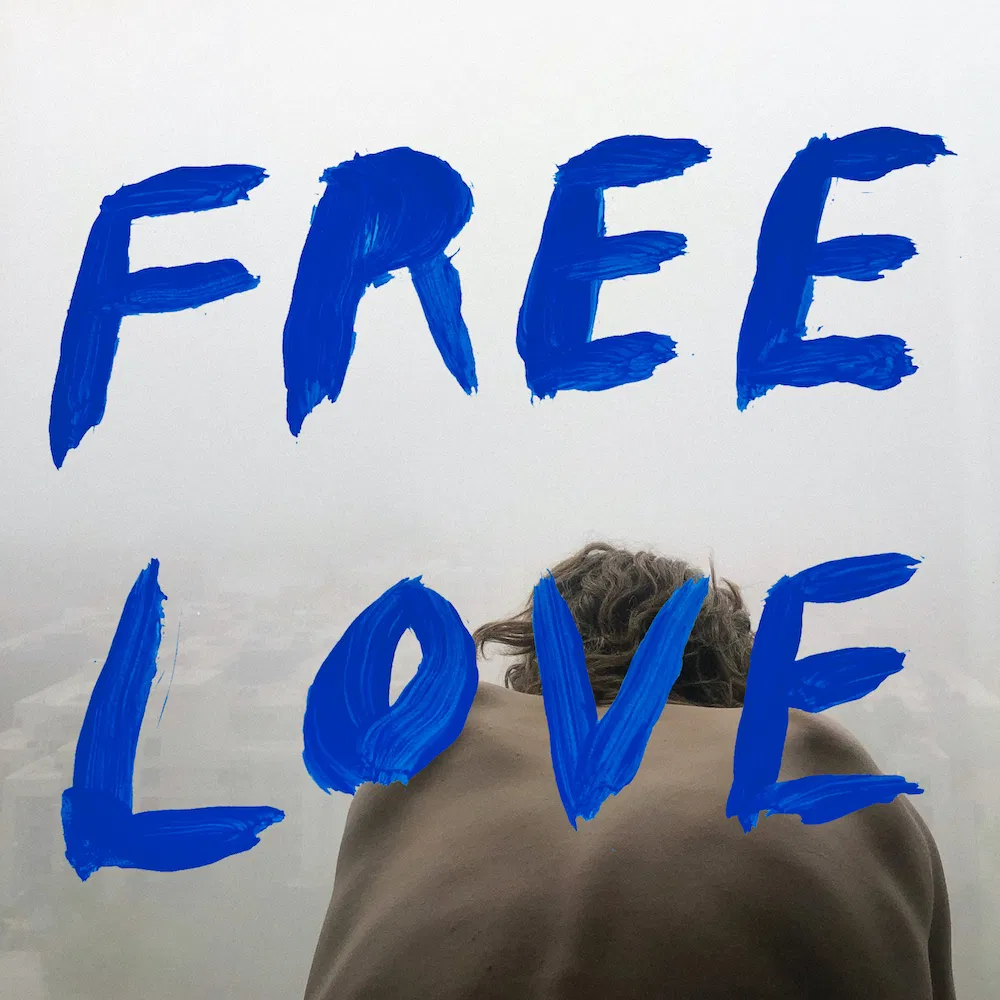Sylvan Esso's Free Love
Kelsey Kershner
Published

I first heard Sylvan Esso on Cincinnati's late underground radio station in 2017. I was captivated by the upbeat dance track, "Radio", and swooned by the gravelly synth in "Die Young". I had found something that felt familiar, like the fit of my dad's old sweaters, or the seat of my first car.
The anticipation for Sylvan Esso's third album, Free Love, had been building up to its promised release on September 25th. After the debut of "Ferris Wheel" in late July, I expected the full album to follow along in the footsteps of their previous two upbeat and dance-track-filled albums. "Ferris Wheel" was a song I found myself listening to again and again in order to thoroughly appreciate it. I loved the way the bass thrummed over the subwoofer, and I loved the way their lead singer, Amelia Meath, sounded like a dance as she sang. The following two singles seemed to stray from Sylvan Esso's previous albums, but the content was still thrilling.
I think we all have a strange relationship with change. We can always do- to the best of our knowledge- what is right. However, as soon as the scenery changes, as soon as the world doesn’t sound the same as it did before, a feeling arises in the pit of your stomach, as if perhaps you made the wrong choice. In the end, it just takes a little settling in. It takes finding a niche, finding a routine, finding a way of life. And eventually, there will be a time when that new routine provides safety, it will give you a sense of self, and it will become tight and restrictive. Then you have got to mix things up again.
That is how I feel Sylvan Esso’s Free Love played out. It is undoubtedly Amelia Meath singing and Nick Sanborn behind the music, but it seems removed from the sound of their first self-titled album, 2017’s What Now. It is a little uncomfortable, it is a little different, and it sounds alien and offbeat at first. But at some point you’ll listen to the songs again and it will seem as if they don’t fit with what Sylvan Esso is, but rather what they will be. And maybe it will take a few listens, not straight through, but here and there. With new things, sometimes it just takes sitting with it for a while and letting it marinate. I can’t quite explain what I felt when hearing it for the first time. It wasn’t the total sense of release I yearned for, but it was satisfactory. Just not in the way I expected it to be, nor the way I wanted it to be. It pans out like another lesson to be learned: what you’re looking for isn’t always what’s best, and it isn’t always what you really needed.
The album begins with the song “Ring”, full of a subliminal rising tension, that never felt properly released. This leads to “Ferris Wheel” which is declared to be a song for the summer, like it was made for that more jovial ‘era’ of quarantine. Something light and happy, something gentle. A song for a time when everything didn’t feel so stale and old. Where “Ring” felt full, the third track, “Train”, felt empty. The song echoes without quite echoing, the chords change and you’re left again to yearn for the break of tension like in “Ring”. Then comes “Numb”, which feels unwieldy and offbeat, and something seems to be missing until the hook arrives.
I realized then, while listening at the desk in my bedroom, that Sylvan Esso would defy my expectations. It was an album that felt perpendicular to their first two; it was an ode to change and to discomfort and to things being off kilter. “Numb” felt like driving away from something, from life, and from the way things once were.
Their next song, “Free”, was meant to be the focal point of the album. With its palindromic droning and anthemic execution, the sixth song of the album felt like the monument to losing yourself in the depths of love. At first a jarring transition, a second listen establishes that the theme of love had been present in this album the whole time, running with silent impact through the first five songs. The idea of love is reiterated in “Frequency”, but not the same love as in the previous track. “Frequency” exemplifies the type of love that is both eternal and ever-present, but rooted in the 21st century; it is a love from the time of iPhones and instant gratification. The song is filled with imagery from the past to stress the depth and the desire to be completely surrounded by something that could be considered love.
I did not listen to this album with the intention of writing about it. I think the initial listen should be to hear it and feel it, not to pick it apart. With an open heart, I listened to “Runaway” and through the rest of the album. During my first listen, these three tracks were not my favorite. I analyzed the lyrics and the feeling of them was quickly lost. “Runaway” is a boppy tune with lyrics that reflect on painful realities in the United States. “Rooftop Dancing” reminds us to move our bodies, as our lives turn more and more idle. The sound of children playing in the street lines the background of the song like string lights. I couldn’t help but play it a few times through, just to catch the squeaking of the door and the sound of fingers sliding across guitar strings. It’s not so much about the lyrics, and it never has been with Sylvan Esso. The lyrics—what Meath is saying as she sings over the music— are the final element that complete the song.
Free Love finishes with “Make it Easy”, which is reminiscent of “Let it Be” by the Beatles in a strange way. The crackle in the background, the sound a record makes before the music starts, is nostalgic. Perhaps that’s what “Make it Easy” is supposed to be, if anything at all. Music builds around it, synths eventually filling out and growing louder as Meath’s voice gets more and more distorted, repeating with an air of desperation, “it’s playing out”. The lyrics lose themselves in everything going on, filling up a simple song until it’s no longer bare. Then I start to hear elements of their past songs. The repetition is overflowing with an unplaceable yet familiar emotion, the layering of sound and music as it obscures Meath’s voice, drowning her out, but also drowning out every thought besides the music until it is all you can hear. Someone says, “Cool” at the end. It is not quite nonchalant, more resolute, like after you’ve poured your heart out to someone and you just stare at each other. Preceding that hurricane of sincerity and rawness, sending each other off, with something akin to the “good game” at the end of a peewee soccer match. It seems to balance out everything that came before.
Free Love starkly contrasts its predecessors without shedding its identity. It is an album released in a time of change and uncertainty and fear, and it is an album that is not so much about new beginnings, as it is about the process leading to them. In Sylvan Esso’s new album, it is what you feel subconsciously, it is the things you cannot quite put your finger on, the words that perch dutifully on the tip of your tongue. But, undoubtedly, it is a metaphor for moving on to different things. The sound changes, but who it is, the identity, remains steadfast; it is something to hold on to. Free Love reminds us to continue to love deeply and live fully, but deeper still, it reminds us to embrace the change that fills our lives while still knowing what it is that makes us who we are.

